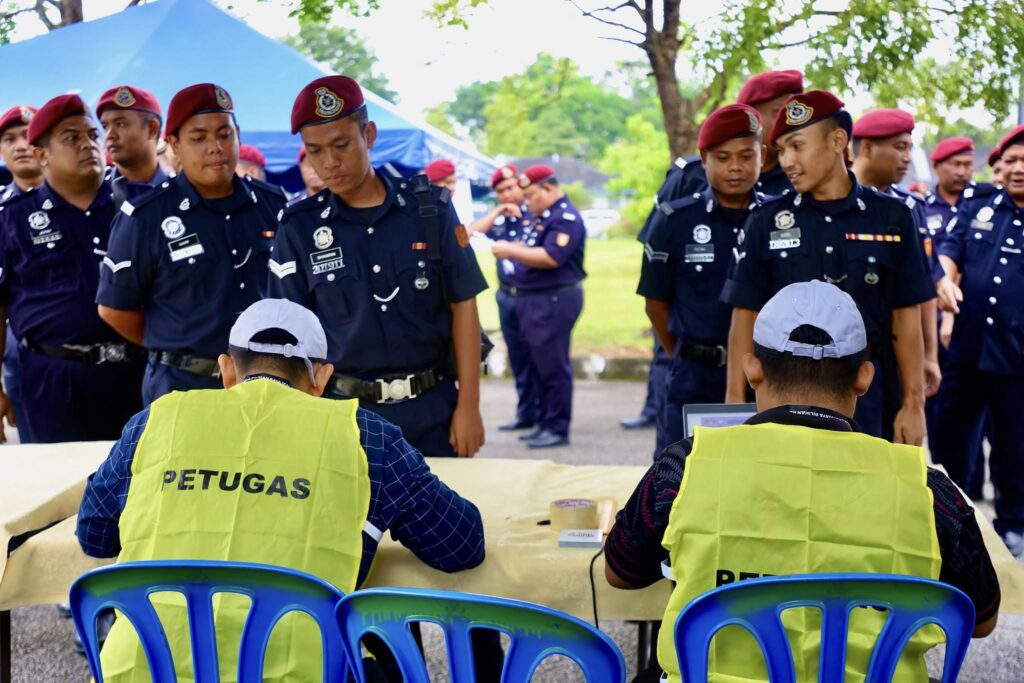
TAPAH, April 24 (Bernama): The Ayer Kuning state by-election campaign is entering its final phase, with just one day left before the 31,316 voters head to the polls this Saturday.
Voters are expected to weigh several factors in making their decision, including the candidates’ personal qualities, their ability to deliver on manifesto promises, and the local and national issues highlighted throughout the campaign.
Political analyst Prof Dr Ahmad Martadha Mohamed observed that voters in the constituency are more focused on practical, community-based concerns such as basic infrastructure, healthcare services, and the welfare of smallholders, issues that directly affect their daily lives, than broader national political narratives.
The deputy vice-chancellor (Student Affairs and Alumni) of Universiti Utara Malaysia (UUM) said that campaign tactics revolving around the 3Rs (religion, race, and royalty) or provocative political rhetoric have proven ineffective in rural areas like Ayer Kuning.
“Voters here are more interested in candidates who can bring tangible improvements in welfare and development. National issues, such as controversies over the Jalur Gemilang or religious political discourse, are unlikely to sway their decision.
So, it can be concluded that in the context of this by-election, local issues carry greater weight than national concerns. Campaigns that focus on national narratives are unlikely to gain much traction with voters here,” he told Bernama.
Ahmad Martadha also noted that the house-to-house campaign strategy has proven more effective in the Ayer Kuning state by-election compared to large-scale rallies as it allows candidates and party machinery to engage directly with voters, addressing their concerns on a personal level.
“Large gatherings typically attract the same audience and do little to expand voter support,” he added.
At this stage, Ahmad Martadha sees Barisan Nasional (BN) candidate Dr Mohamad Yusri Bakir, with his academic credentials and the backing of the Pakatan Harapan (PH) election machinery, as having the upper hand in the race for the state seat.
Meanwhile, Senior Lecturer and Coordinator of the Humanities Science Cluster at Universiti Pendidikan Sultan Idris (UPSI), Dr Siti Noranizahhafizah Boyman, echoed similar sentiments.
AYER KUNING-ANALYSIS (ISSUE) 3 TAPAH
She stressed that campaign efforts should prioritise addressing local issues, rather than leaning on 3R sentiments.
“It’s time for all parties to adopt more constructive and effective approaches in winning voter support,” she said.
However, she acknowledged that while 3R sentiments did surface during the campaign, they could still have a limited influence on certain segments of voters.
On voting patterns, Siti Noranizahhafizah noted that voters tend to favour candidates or parties whose views and values align with their own.
The Ayer Kuning state by-election this Saturday features a three-way contest between Barisan Nasional (BN) candidate Dr Mohamad Yusri Bakir, Perikatan Nasional (PN) candidate Abd Muhaimin Malek, and Parti Sosialis Malaysia (PSM) candidate Bawani KS.
The by-election was called following the death of incumbent assemblyman Ishsam Shahruddin, 58, last February 22.
— BERNAMA